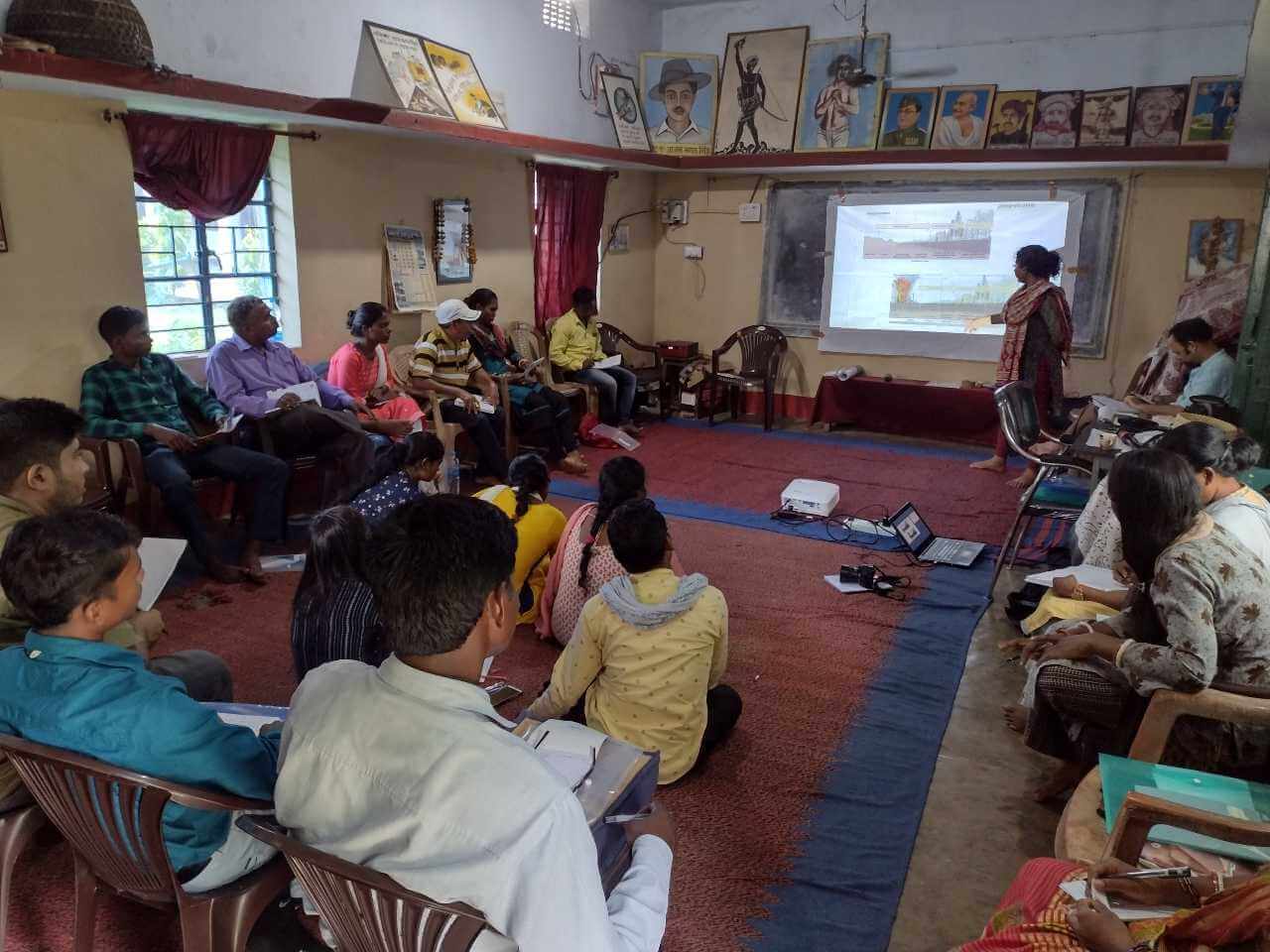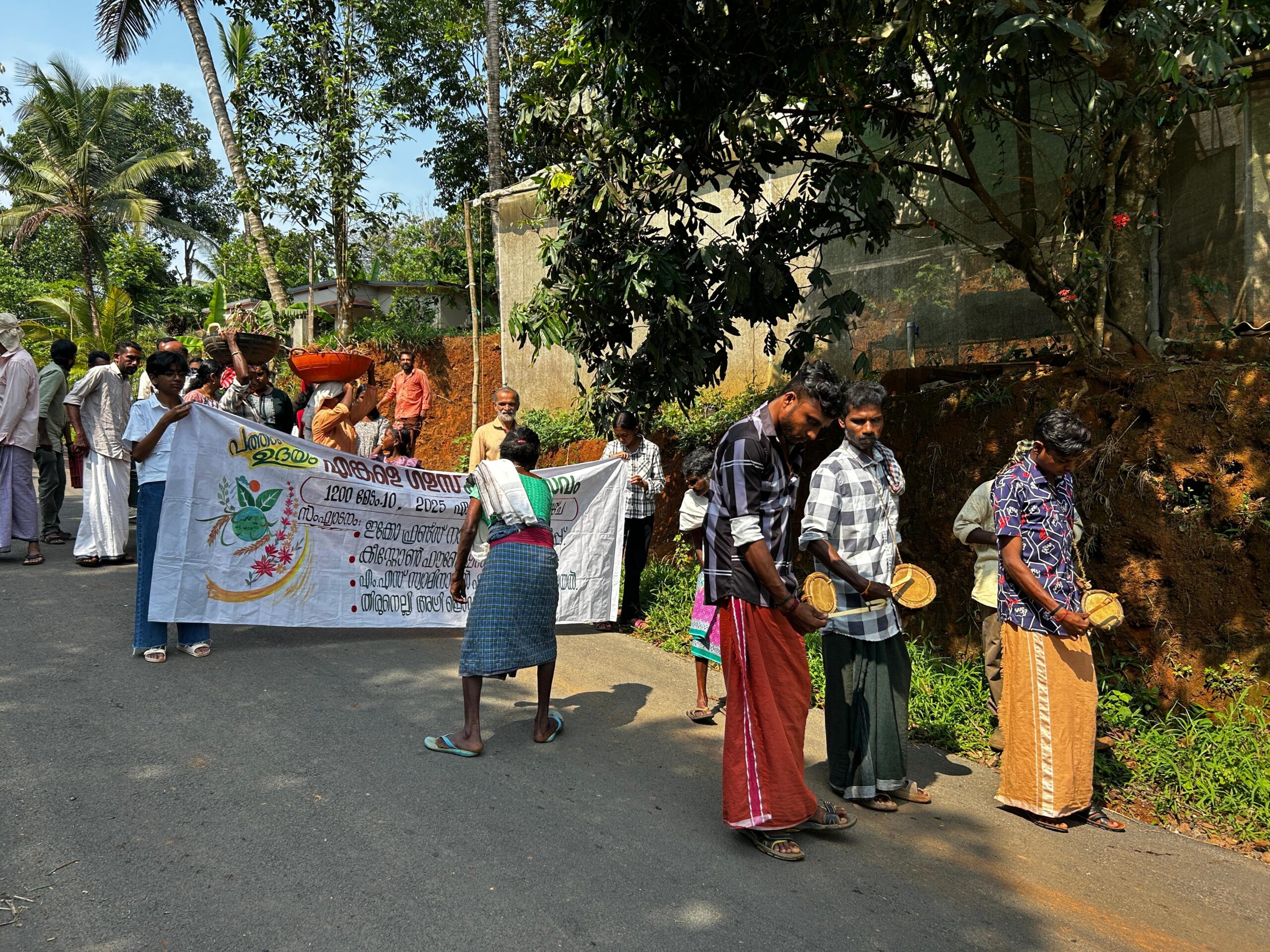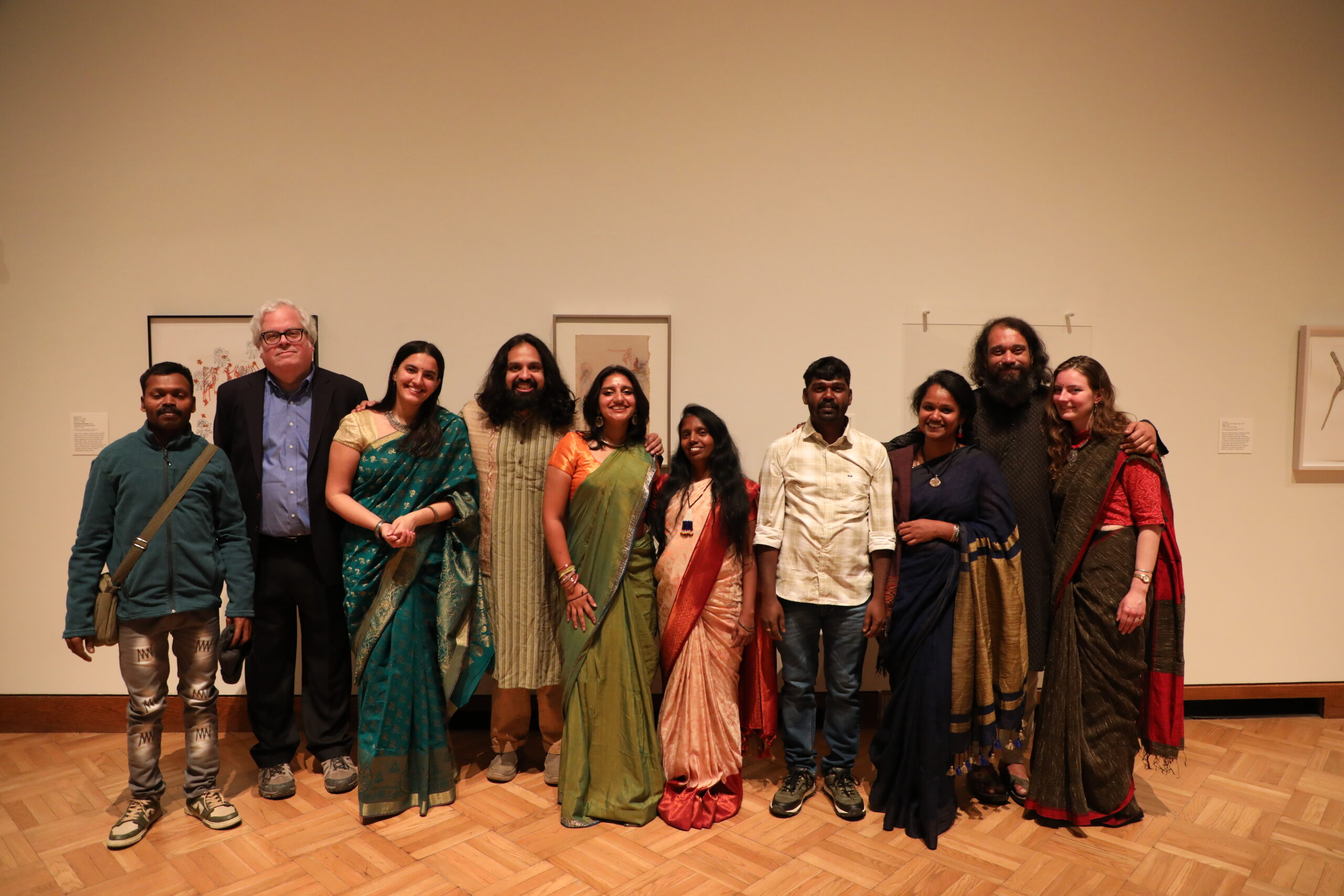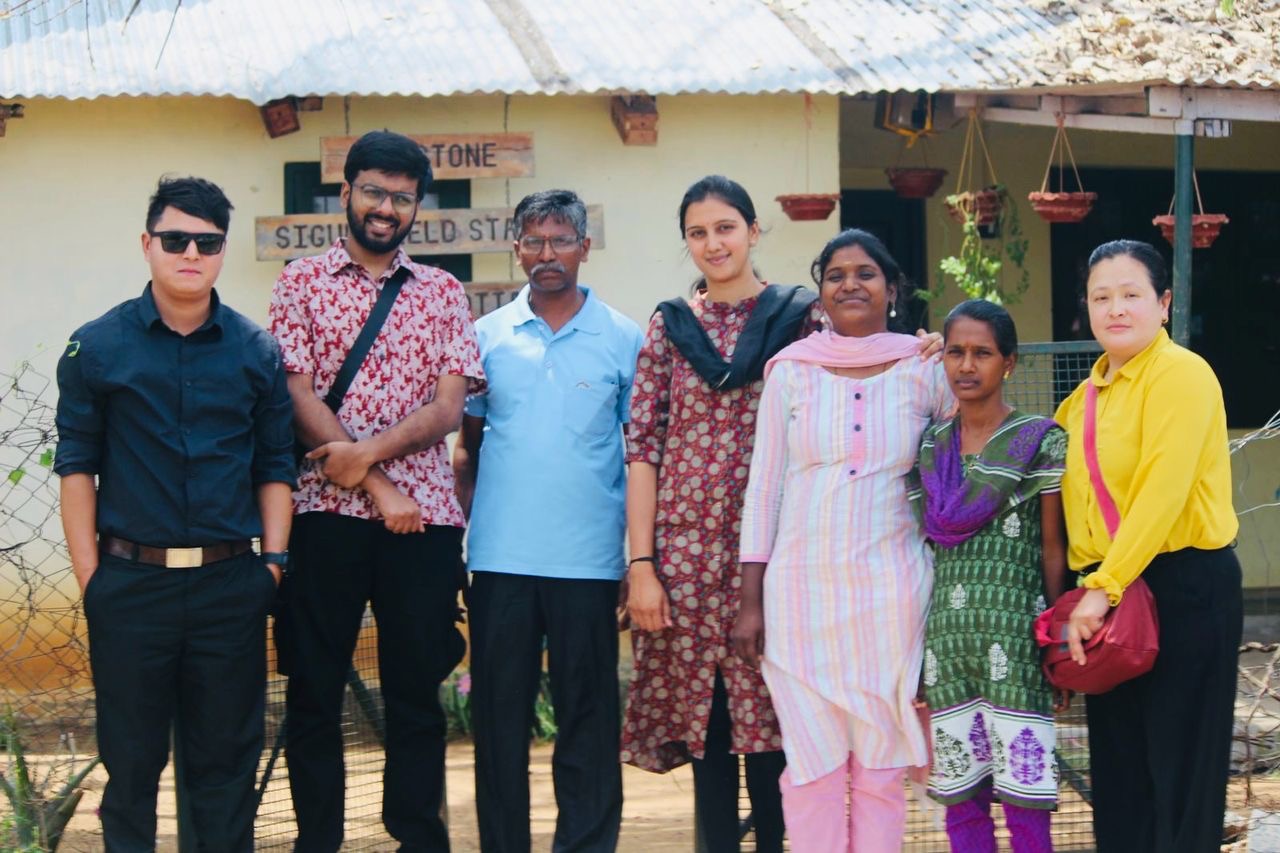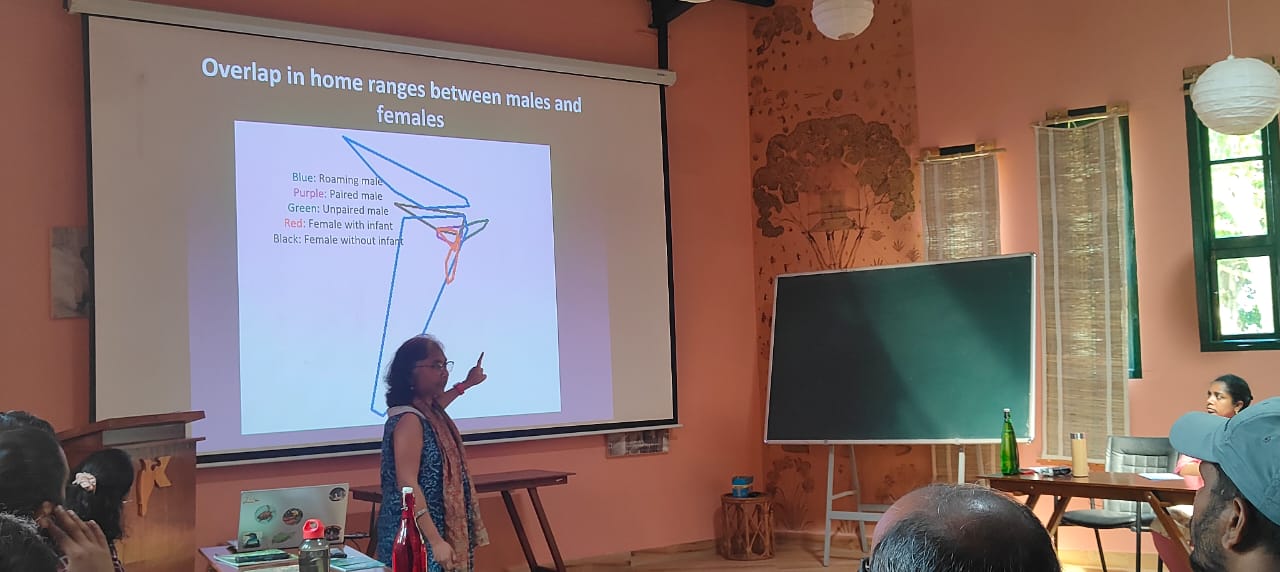Bhavya George
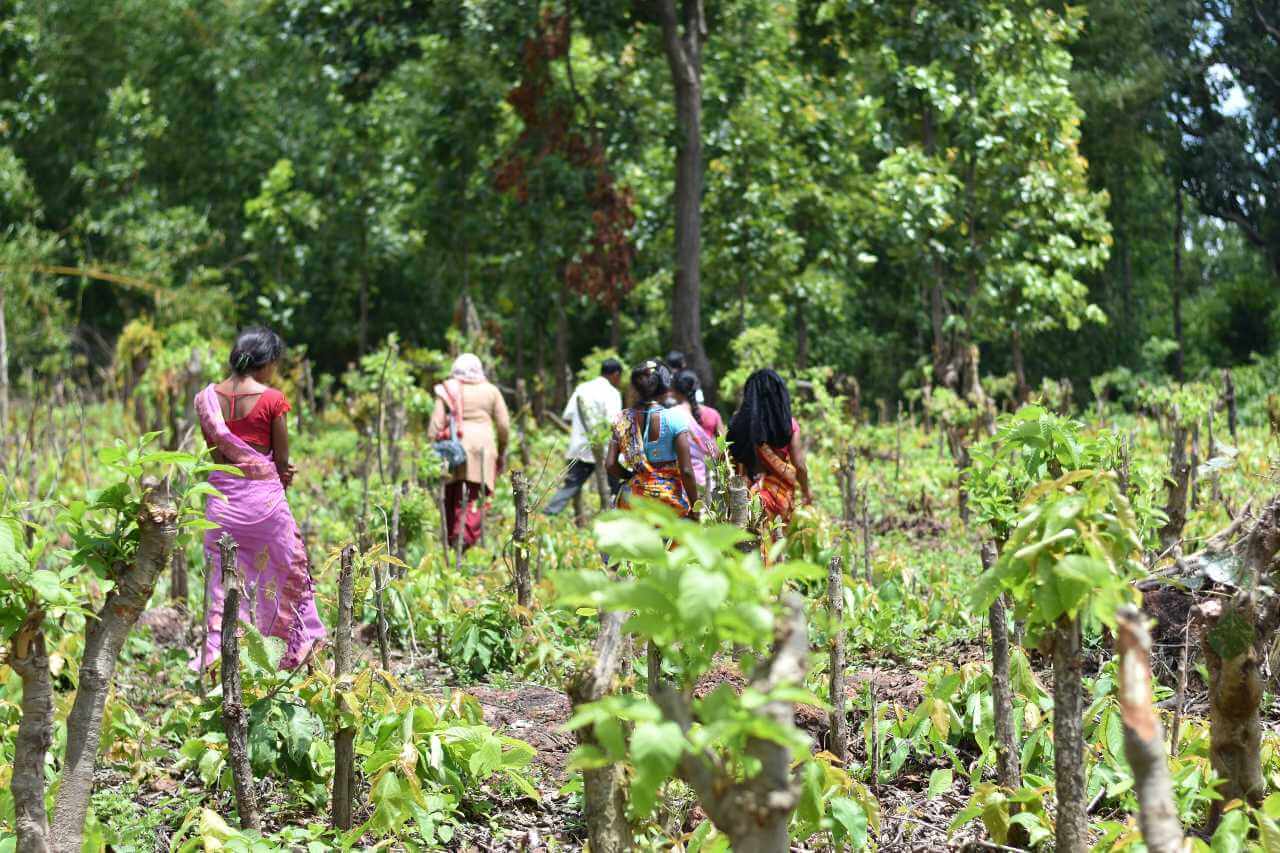
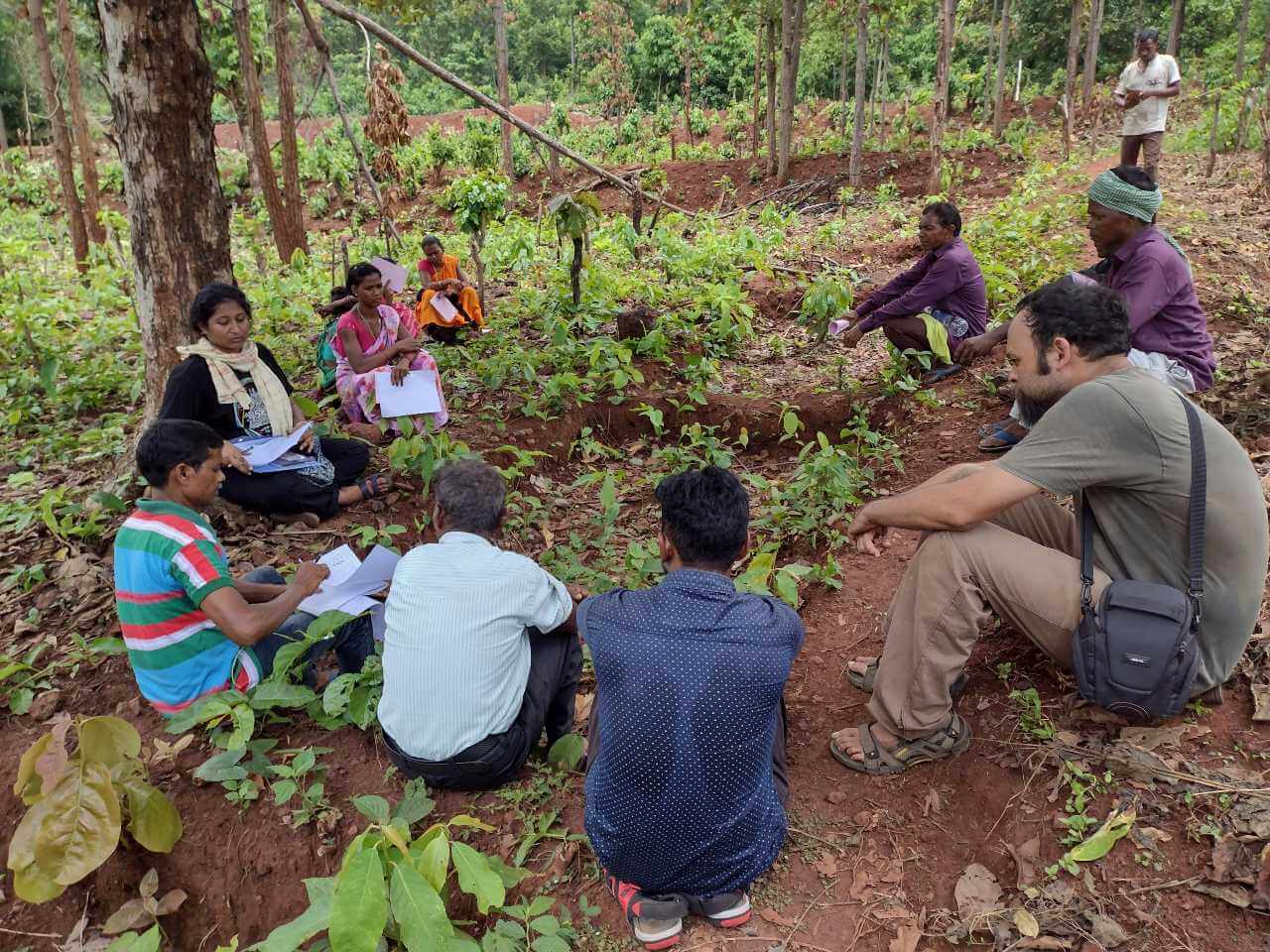
The socio-ecological changes observed and experienced due to Climate Change for sure have an impact on the natural resources, food security, health and livelihoods. The threat is especially severe for the indigenous and local communities dependent on natural resources for their everyday life. It becomes important in that context for the communities to become aware of the climate change impacts and advocate for the local nature based and gender just solutions.
On the same note, field-based training workshop was held in the Field areas of our newly set up Eastern India office at Potka, East Singhbum District of Jharkhand. The office is set up in collaboration with our NTFP-EP network partner Prakriti Chetana Kendra and it is in their lovely campus which seems more like a home. The main purpose of the training was to build the capacity of the stewards in undertaking the monitoring of their natural resources- forest and farm with a barefoot ecology approach. Another important aspect was to engage the stewards in the conversation about the Gender inclusivity and using the gender lens in the works on climate change.
The training was held from July 14th to July 19th in two field areas – Potka, East Singhbum District and Sunderpahari, Godda District of Jharkhand. 30 participants from Bhumij, Sabar, Ho, Paharia communities involved in the training. It was a learning experience on both sides. Rohan Mukherjee, Asish M and Bhavya George from Keystone Foundation were the resource persons for the training. The topics like, socio-ecological systems, field techniques to monitor -transects, point count method, Gender inclusivity, Science of Climate change were covered in two days training in each area. The training was hands on and field based so as to make it interesting and simple for the participants to grasp the topics.
The experience as trainers were immense in both the ways of social and natural ecosystems. With the women who are not that great with Hindi compared to men, language seemed a bit of barrier initially because of Bengali and Pahari languages being dominant.But with time the barrier broke and we could interact at ease and became more a family like.
We were intrigued in the weather change along our travel as the field days in Potka region was rain based with incessant rains. Whereas, Sunderpaharai welcomed us with harsh sun though it was supposed to be the monsoon time.
The forest walks in Potka region gave a glimpse of the Sal (Shorea robusta) forests with kusum(Schleichera oleosa) tree all with fruits to relish on. Mahua (Madhuca longifolia) is also another dominant tree of the region. Women were adept in identifying the various kinds of mushrooms which seemed hidden and invisible to our eyes charmed us with their knowledge of wildfoods. In the same way, the field days in Sunderpahari was fun with their curiosity in identifying the insects and birds. Community Steward Kumar could easily mimic the bird sounds of their area and it did make all engaged and laugh in the hot afternoons field assignment.
In such areas, where the impacts of climate change are doubled due to mining of Iron and other important minerals, climate adaptation measures take on a special significance for safeguarding their livelihoods and ensuring sustainable development.

